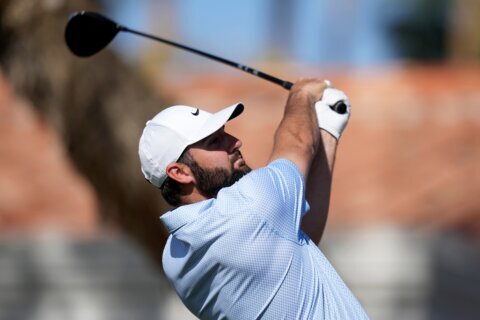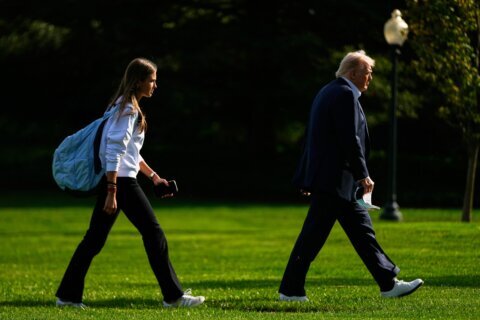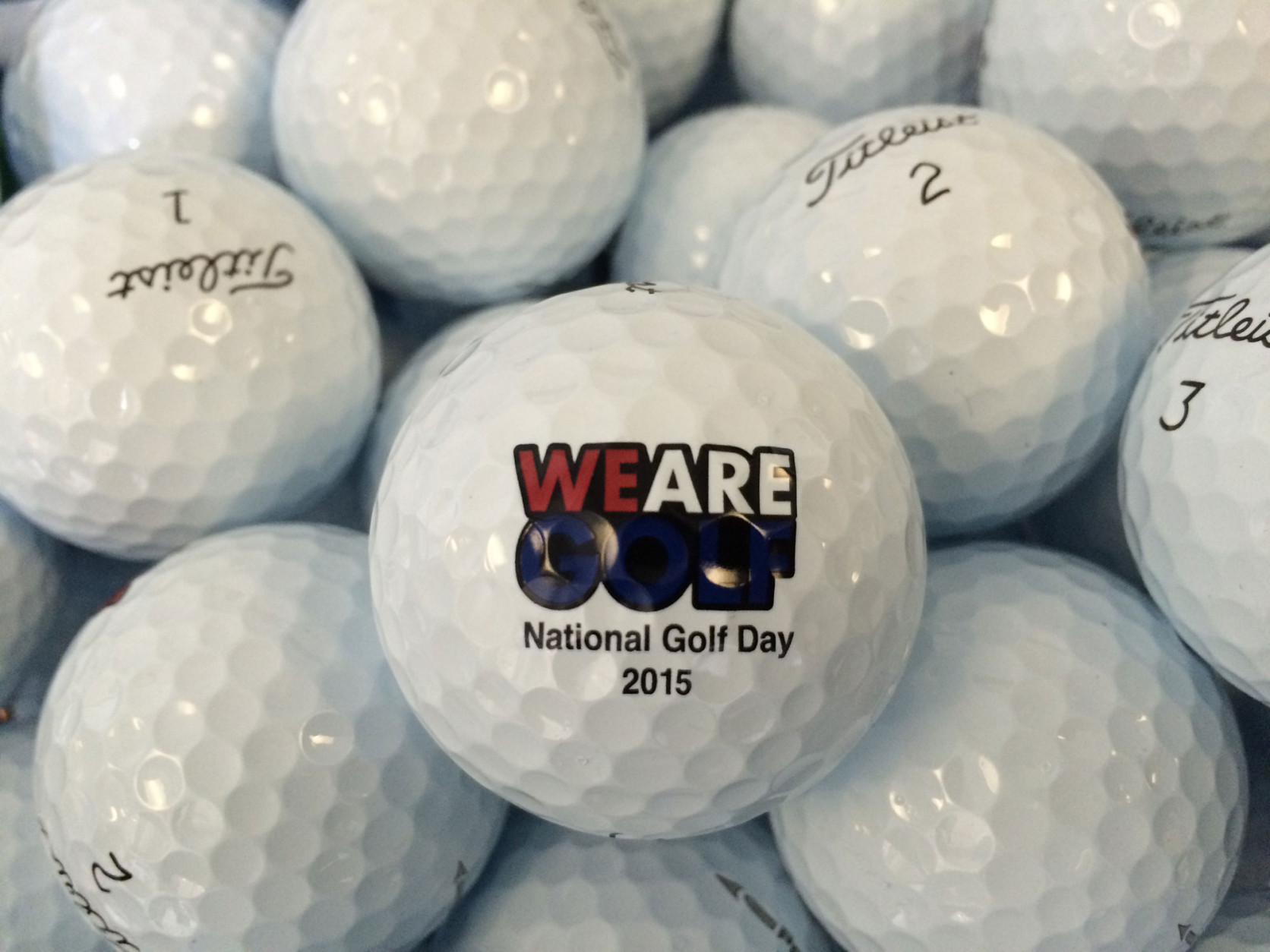


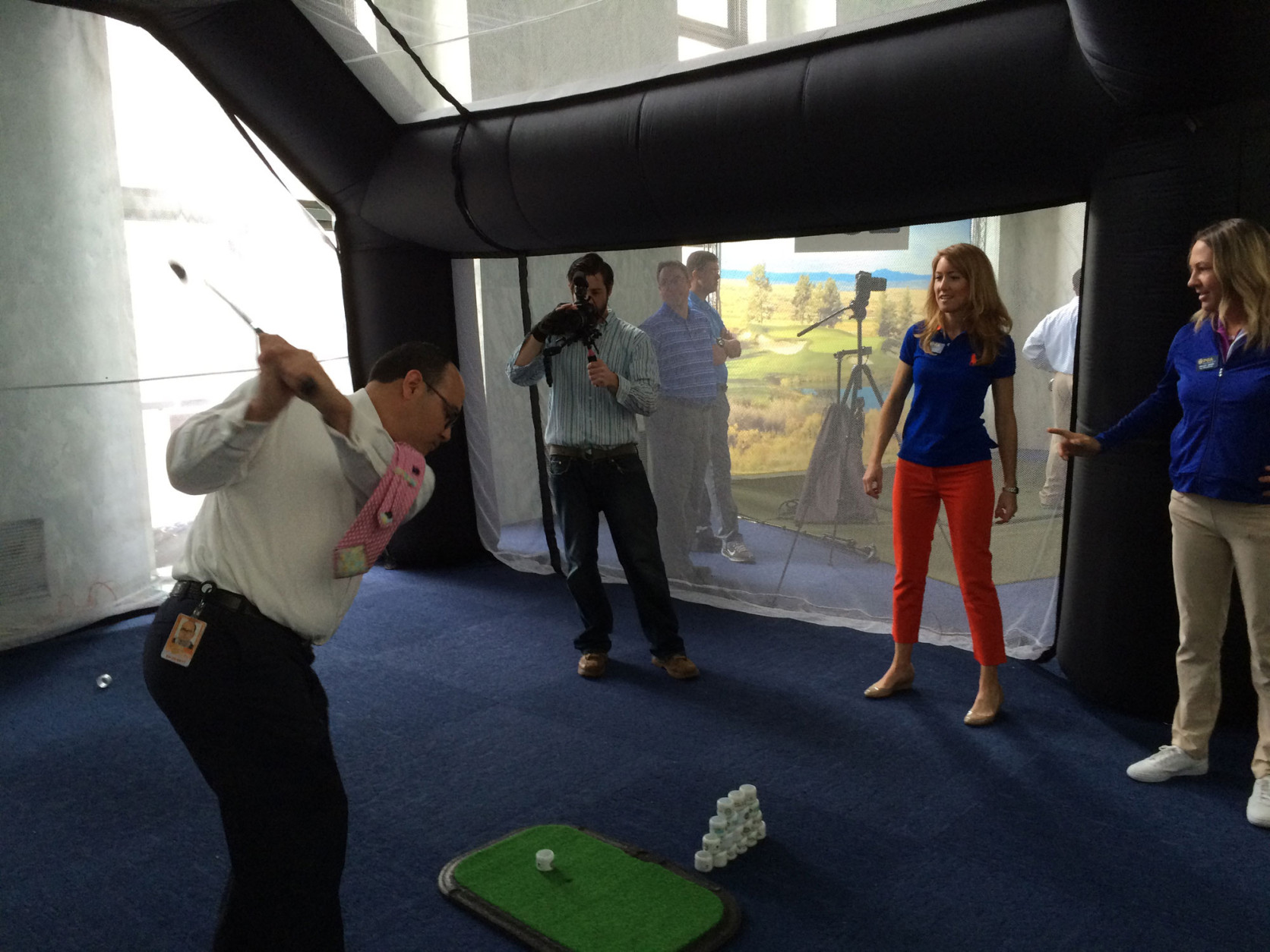
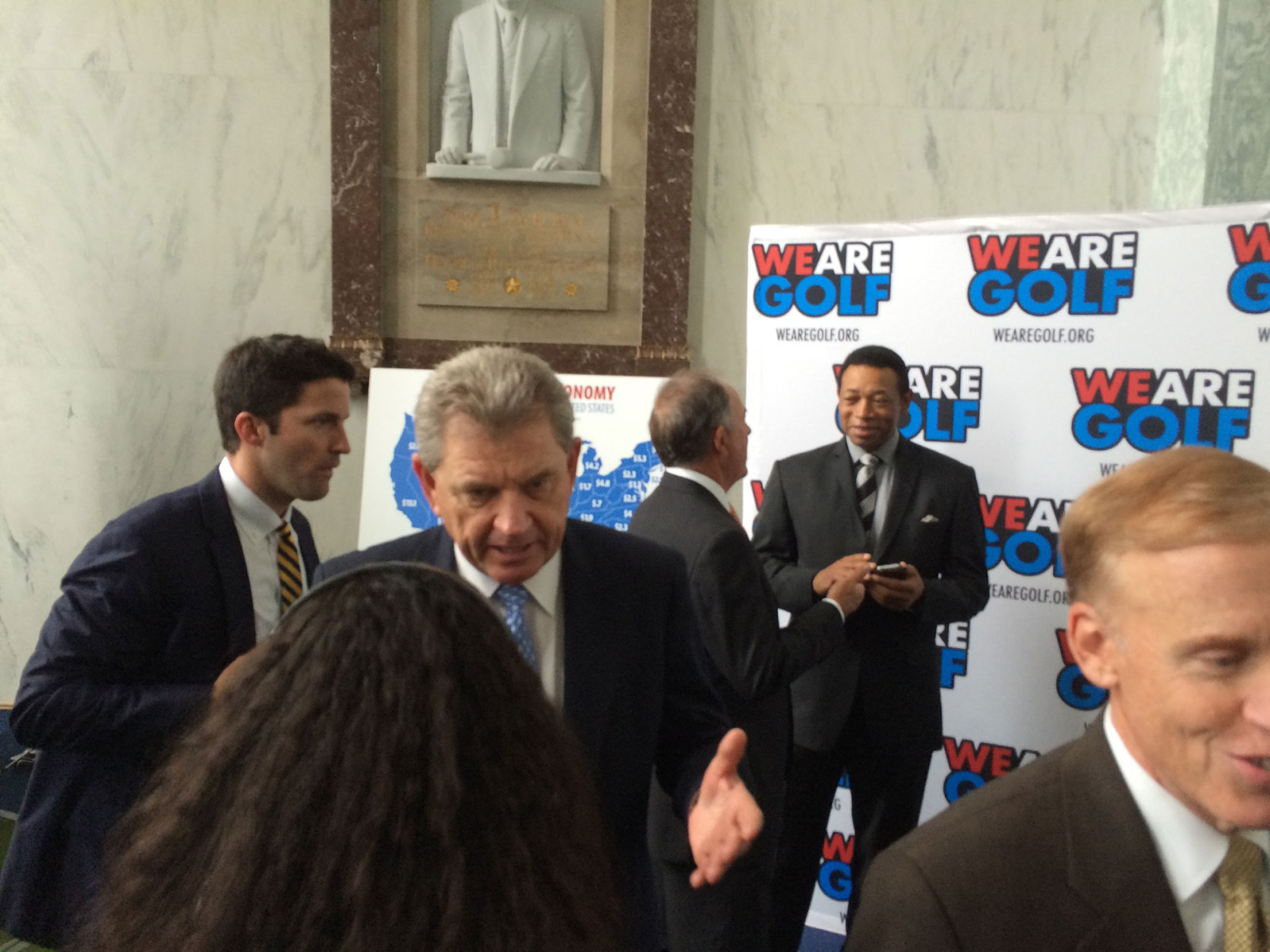
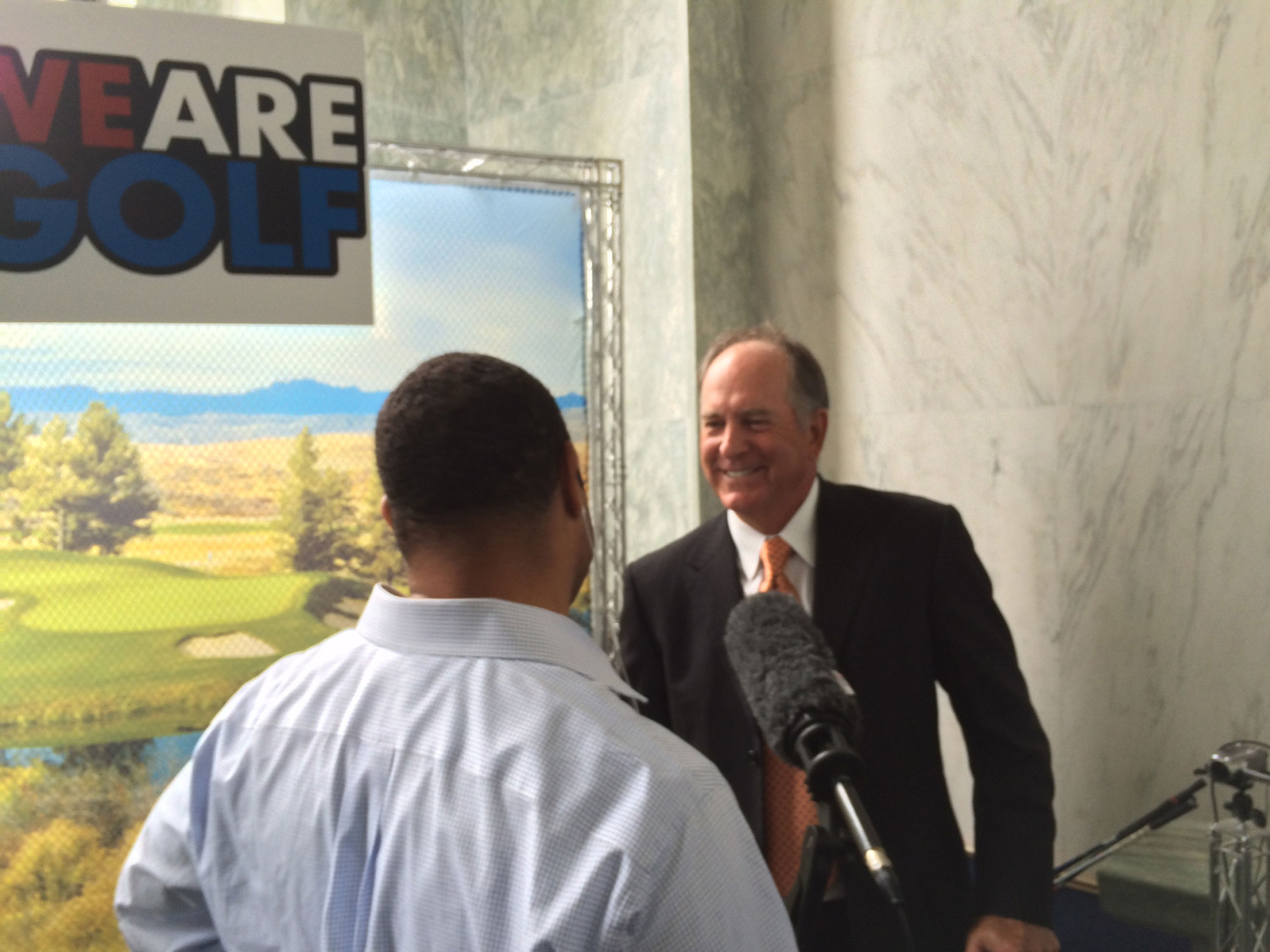
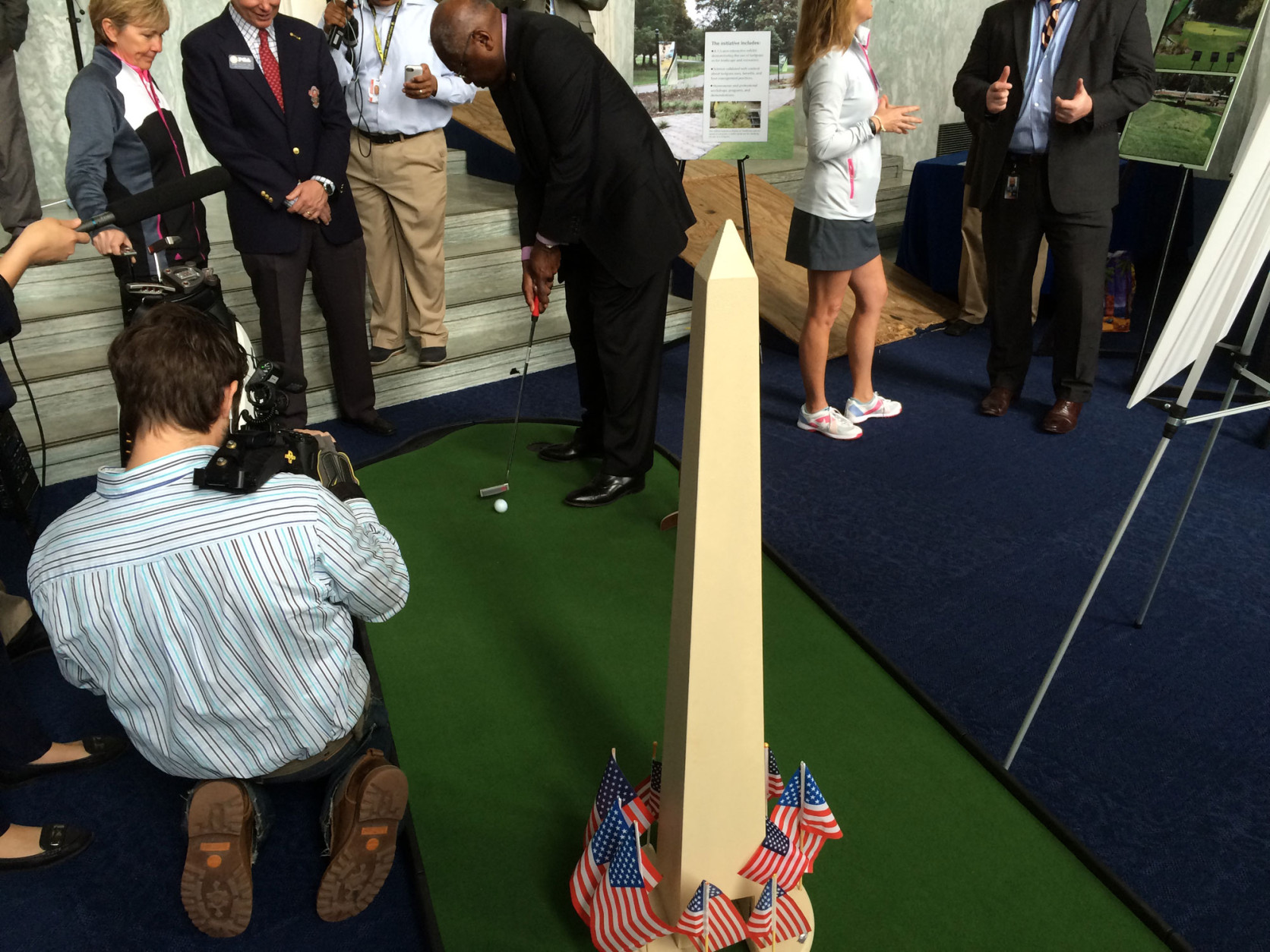

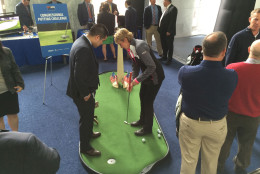

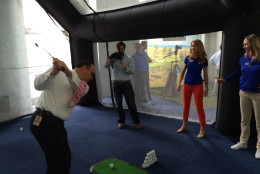
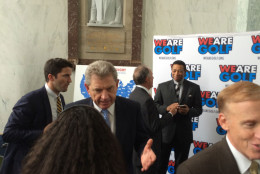
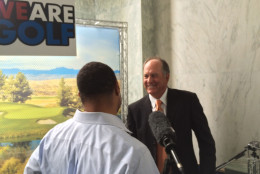
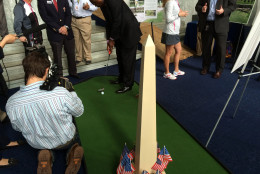
WASHINGTON — Plenty of interest groups come to Washington to lobby for their cause, educating Congress on the benefits of their particular product. Not many bring interactive demos where you can take a full golf swing in your suit and participate in a putting contest through a miniature Washington Monument.
Wednesday wasn’t your average day on Capitol Hill, as We Are Golf arrived for National Golf Day, just three days after the conclusion of The Masters.
Of course, the timing was no accident.
“We do this, purposely, the Wednesday after The Masters each year,” said Steve Mona, CEO of the World Golf Foundation, which develops and supports golf initiatives like The First Tee. “And the reason that we do is that interest in golf is about as high as it’s going to be all year right after the Masters. Everybody has got it on the brain, even if they’re not an avid golfer.”
This year’s wire-to-wire Masters run by 21-year-old phenom Jordan Spieth, coupled with the competitive return of Tiger Woods, made the 2015 event a particularly well-timed one. In terms of both share rating and average viewership, television ratings were up 26 percent over last year. The final round was even better, with the share rating up 45 percent and the average viewership spiking 51 percent from 2014.
That interest beyond the ropes at Augusta is more crucial for Mona, who is a key player in a nearly $70 billion industry that employs 2 million Americans.
“The professional game is important; it draws a lot of attention, it creates interest,” Mona said. “But the real kind of backbone of golf is what what’s being talked about [Wednesday].”
That’s why PGA Tour veterans Jay Haas and Nick Price were on hand as well. They are also the captains of the U.S. and International teams, respectively, which will compete at the Presidents Cup in South Korea later this year.
“There’s a lot of goodwill in golf at the moment,” said Price, who understands the need for recognizable faces leading the charge. “And it’s great that Jordan Spieth got in there and won The Masters, and now he’s there to challenge Rory (McIlroy).”
As for Haas, he sees advocating for the game as part of the responsibility that comes along with the success he’s enjoyed over his career.
“If there’s a checking account in what I’ve been given through golf and what I’ve given back, I’m still getting way more than I’m giving back,” he said.
The professionals weren’t the only ones who spoke fondly of what the game has taught them over the years. Representative Jim Clyburn (D – SC) is one of the game’s biggest advocates on the Hill.
“I just believe that golf as an individual sport builds character better than any other sport I know.”
Clyburn, who was first elected to Congress in 1992, said he was the only member of the Congressional Black Caucus who played golf when he arrived in Washington. But he says the game allowed him the chance to develop rapport and respect away from the Hill, fostering relationships across the aisle.
“Sometimes I’d be the only Democrat there, and often the only African-American,” he said. “I really learned bipartisanship up here on the golf course.”
Members of both parties were encouraged to participate in a putting contest, where staffers and Congressmen tallied points for their party. If only everything in politics was as simple.

